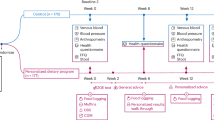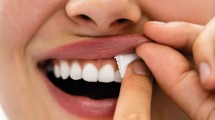Abstract
Data sources
The electronic databases searched included The Cochrane Oral Health Group Trials Register, the Cochrane Central Register of Controlled Trials (Central), MEDLINE via Ovid, PsycINFO via Ovid, CINAHL via EBSCO, the US National Institutes of Health Trials Register (Clinical Trials.gov) and the WHO International Clinical Trials Registry Platform. No restrictions regarding language and date of publication were used and reference lists from relevant articles were screened. Authors from eligible studies were contacted for further information.
Study selection
Randomised or quasi-randomised controlled trials in children with a non-nutritive sucking habit that compared one intervention with another intervention or a non-intervention control group. The primary outcome of interest explored was the cessation of the habit.
Data extraction and synthesis
Study selection, data extraction and risk bias assessment were carried out independently. Three reviewers screened the records, two performed data extraction, two assessed risk of bias and two assessed the overall quality of the evidence. Meta-analysis could not be done.
Results
Six trials involving 252 children (aged 2½ to 18 years). Data were available for only 246 children. Only digit sucking was assessed in the studies. The studies compared single or multiple interventions. All studies were considered high risk of bias due to limitations in the methodology and reporting. The studies had a very small number of participants. Follow up ranged from one to 36 months.
Conclusions
The review found low quality evidence that orthodontic appliances and psychological interventions (including positive and negative reinforcement) are effective at improving sucking cessation in children. There is very low quality evidence that palatal crib is more effective than palatal arch. The orthodontic appliance was more likely to stop digit sucking than no treatment, whether it was used over the short term, risk ratio (RR)= 6.53, 95% confidence interval (CI) 1.67 to 25.53; or long term RR =5.81, (95% CI 1.49 to 22.66); or used in combination with a psychological intervention RR= 6.36, (95% CI 0.97 to 41.96).
Similar content being viewed by others
Commentary
Any ‘non-nutritive sucking habit’ (NNSH) as described in the review is a concern for parents and health providers. The techniques to stop the habit are important and depend on the severity and the possible impact of the behaviour.
The side effects could be minimal and disappear without treatment or they could have more detrimental consequences such as bite problems, aesthetic and physiological concerns.
A Cochrane review with a strong methodology was performed by the authors to look for answers to the question of which therapy is more effective to relieve the habits in children (any non-nutritive sucking habit),
The search resulted in only six articles accepted for inclusion. The years of the articles, in which the studies were performed, ranged from 1967 to 1997.
Despite being an important topic for parents and healthcare providers, in which we are all talking about these habits and how to avoid or stop them, there is surprisingly very little information in the published literature.
The methodologies of the clinical trials selected for the review were categorised as high risk of bias. It seems that any intervention is practical to stop the dependency, such as orthodontic appliances of any kind and psychological interventions (positive and negative reinforcement), although the data show very wide confidence intervals affecting the precision of the results. Hence the results even with some common sense should be interpreted with caution.
However, we are still not sure for how long the intervention needs to last and at which age it is more effective and the cost related with the intervention. The meta-analysis from two of the articles selected favours any kind of intervention. Pacifiers or dummies seem to have a shorter temporary hurtful effect.
I should assume as for many other avoidable problems, we should prioritise prevention of non-nutritive sucking habits as much as possible by teaching parents of the possible adverse events.
Author information
Authors and Affiliations
Additional information
Address for correspondence: Luisa Fernandez Mauleffinch, Managing Editor, Cochrane Oral Health Group, School of Dentistry, The University of Manchester, JR Moore Building, Oxford Road, Manchester, M13 9PL, UK. E-mail: luisa.fernandez@manchester.ac.uk
Borrie FR, Bearn DR, Innes NP, Iheozor-Ejiofor Z. Interventions for the cessation of non-nutritive sucking habits in children. Cochrane Database Syst Rev 2015; 3: Art. No. CD008694. DOI:10.1002/14651858.CD008694.pub2.
This paper is based on a Cochrane Review published in the Cochrane Library 2015, issue 3 (see www.thecochranelibrary.com for information). Cochrane Reviews are regularly updated as new evidence emerges and in response to feedback, and the Cochrane Library should be consulted for the most recent version of the review.
Rights and permissions
About this article
Cite this article
Veitz-Keenan, A. Insufficient evidence to recommend a treatment to stop non-nutritive sucking habits in children. Evid Based Dent 16, 87 (2015). https://doi.org/10.1038/sj.ebd.6401119
Published:
Issue Date:
DOI: https://doi.org/10.1038/sj.ebd.6401119



